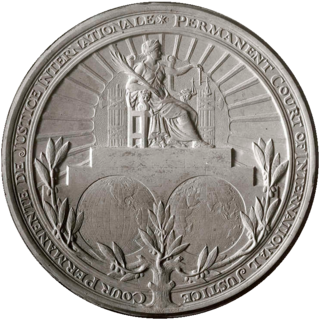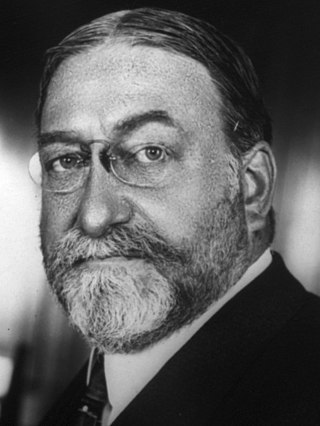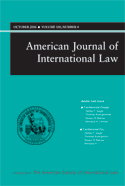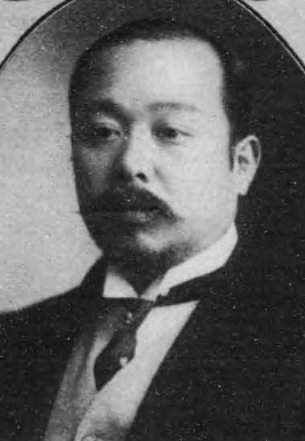Pacta sunt servanda is a brocard and a fundamental principle of law which holds that treaties or contracts are binding upon the parties that entered into the treaty or contract. It is customary international law. According to Hans Wehberg,a professor of international law,"few rules for the ordering of Society have such a deep moral and religious influence" as this principle.

The Permanent Court of International Justice,often called the World Court,existed from 1922 to 1946. It was an international court attached to the League of Nations. Created in 1920,the court was initially well-received from states and academics alike,with many cases submitted to it for its first decade of operation.

Philip Quincy Wright was an American political scientist based at the University of Chicago known for his pioneering work and expertise in international law,international relations,and security studies. He headed the Causes of War project at the University of Chicago,which resulted in the prominent 1942 multi-volume book A Study of War.

John Bassett Moore was an American lawyer and authority on international law. Moore was a State Department official,a professor at Columbia University,and a judge of the Permanent Court of International Justice from 1922 to 1928,the first American judge to sit on that judicial body.
The Charter of the Organization of the American States is a Pan-American treaty that sets out the creation of the Organization of American States. It was signed at the Ninth International Conference of American States of 30 April 1948,held in Bogotá,Colombia. The treaty came into effect on 13 December 1951.

Sir Hersch Lauterpacht was a British international lawyer,human rights activist,and judge at the International Court of Justice.

Carlos Calvo was an Argentine publicist and diplomat who made influential contributions to international law. He is most well known for the Calvo Doctrine in international law,which holds that jurisdiction in international investment disputes lies with the country in which the investment is located.

Paul Samuel Reinsch,was an American political scientist and diplomat. He played an influential role in developing the field of international relations. He helped form the American Political Science Association and the American Society of International Law.

James Wilford Garner was an American political scientist who was professor of political science at the University of Illinois.

James Brown Scott was an American legal scholar. He founded the law school at University of Southern California and was professor of law at University of Illinois,Columbia University,George Washington University,and Georgetown University. He was editor in chief of the American Journal of International Law, played a key role in founding the American Society of International Law,and was an expert to the United States delegation at the Second Hague Peace Conference.

George Grafton Wilson was a professor of International Law during the first half of the 20th century. He served on the faculties of Brown University,Harvard University,The Fletcher School of Law and Diplomacy,and the U.S. Naval War College.

The American Society of International Law (ASIL) is a professional association of international lawyers in the United States. The organization was founded in 1906. After the Lake Mohonk Conference on International Arbitration,some participants felt the need for a society devoted to international law separate from international arbitration. Participants in a meeting held on December 9,1905,at the residence of Oscar S. Straus agreed to establish the ASIL.

The American Journal of International Law is an English-language scholarly journal focusing on international law and international relations. It is published quarterly since 1907 by the American Society of International Law (ASIL).

The Permanent Court of International Justice was an international court attached to the League of Nations. The Court initially consisted of 11 judges and 4 deputy judges,recommended by member states of the League of Nations to the Secretary General of the League of Nations,who would put them before the Council and Assembly for election. The Council and Assembly were to bear in mind that the elected panel of judges was to represent every major legal tradition in the League,along with "every major civilization". Each member state was allowed to recommend 4 potential judges,with a maximum of 2 from its own nation. Judges were elected by a straight majority vote,held independently in the Council and Assembly. The judges served for a period of nine years,with their term limits all expiring at the same time,necessitating a completely new set of elections. The judges were independent and rid themselves of their nationality for the purposes of hearing cases,owing allegiance to no individual member state,although it was forbidden to have more than one judge from the same state. As a sign of their independence from national ties,judges were given full diplomatic immunity when engaged in Court business The only requirements for a judge were "high moral character" and that they have "the qualifications required in their respective countries [for] the highest judicial offices" or be "jurisconsults of recognized competence in international law".

Sakuye Takahashi was a Japanese expert on international law.
American Institute of International Law was an international scientific association for the study and progress of international law in the Americas.
Charles Henry Huberich was an American lawyer and scholar of international law. In 1906,he served as the acting executive head of Stanford Law School.
James Leslie Brierly was an English scholar of international law.
Ram Prakash Anand (1933–2011) was an international legal scholar and a pioneer of Third World approaches to international law.

Hazel Alberta Colclaser was an American aviation lawyer and foreign service officer. She was also involved in early efforts to shape space law.














